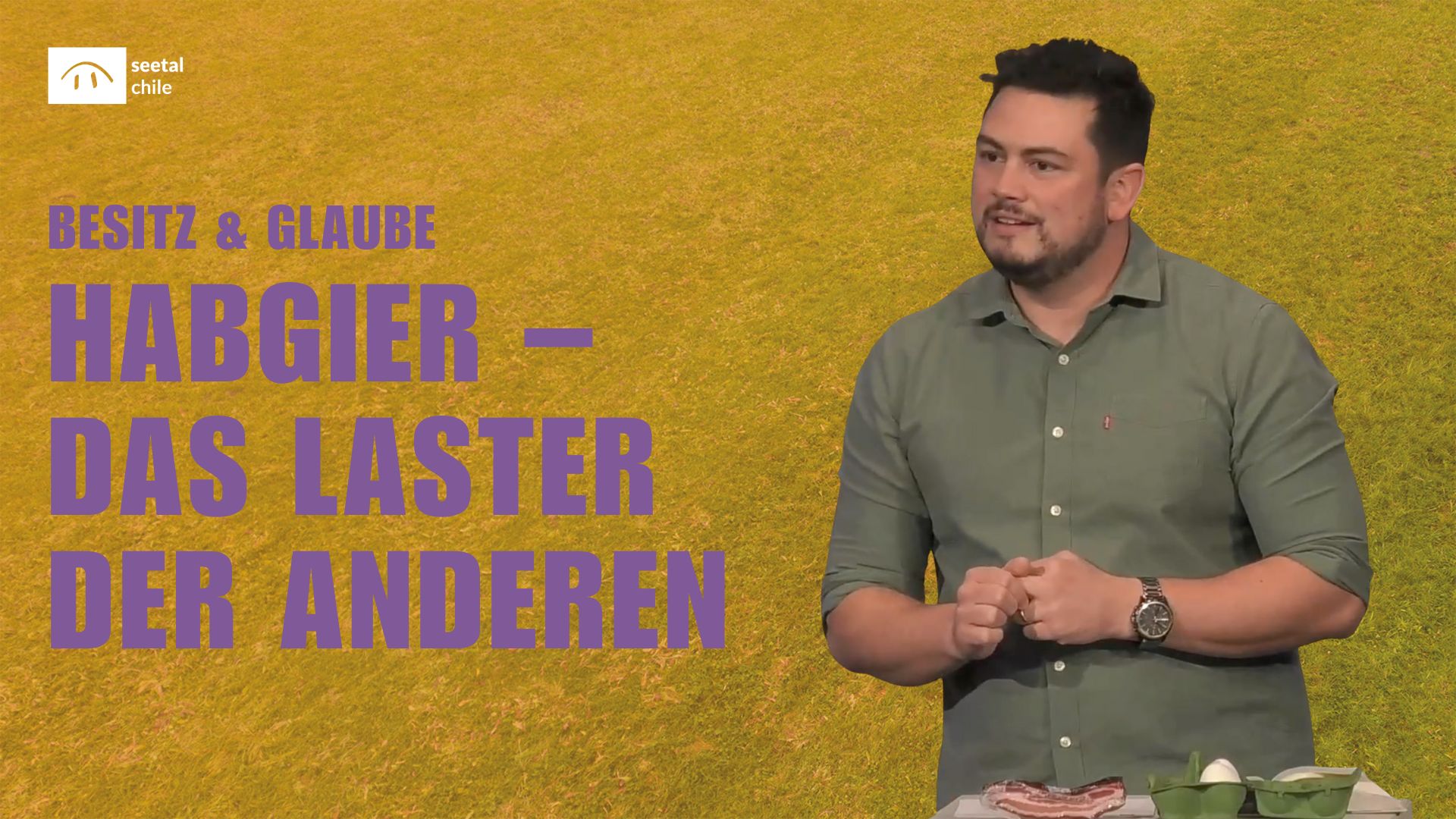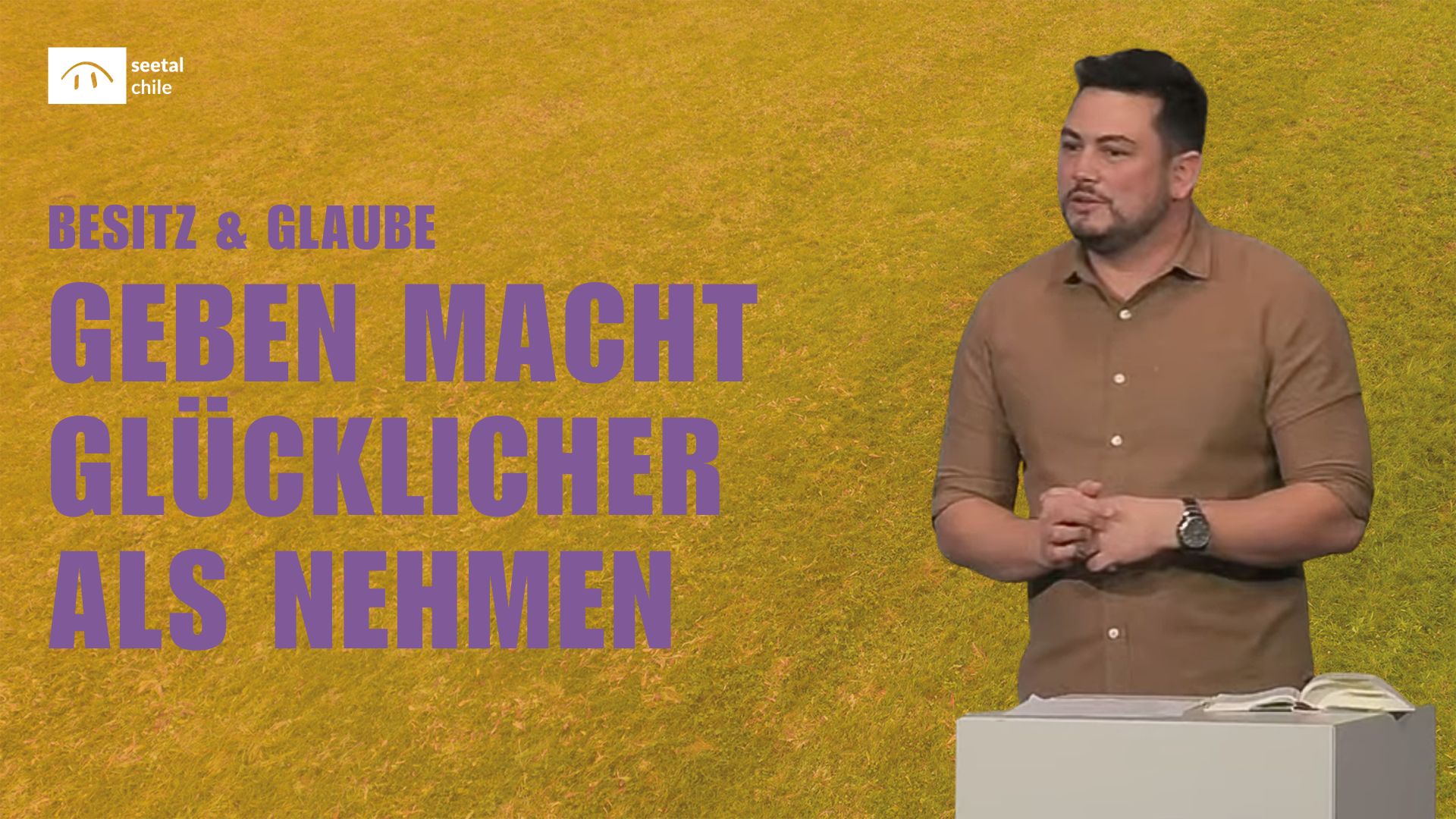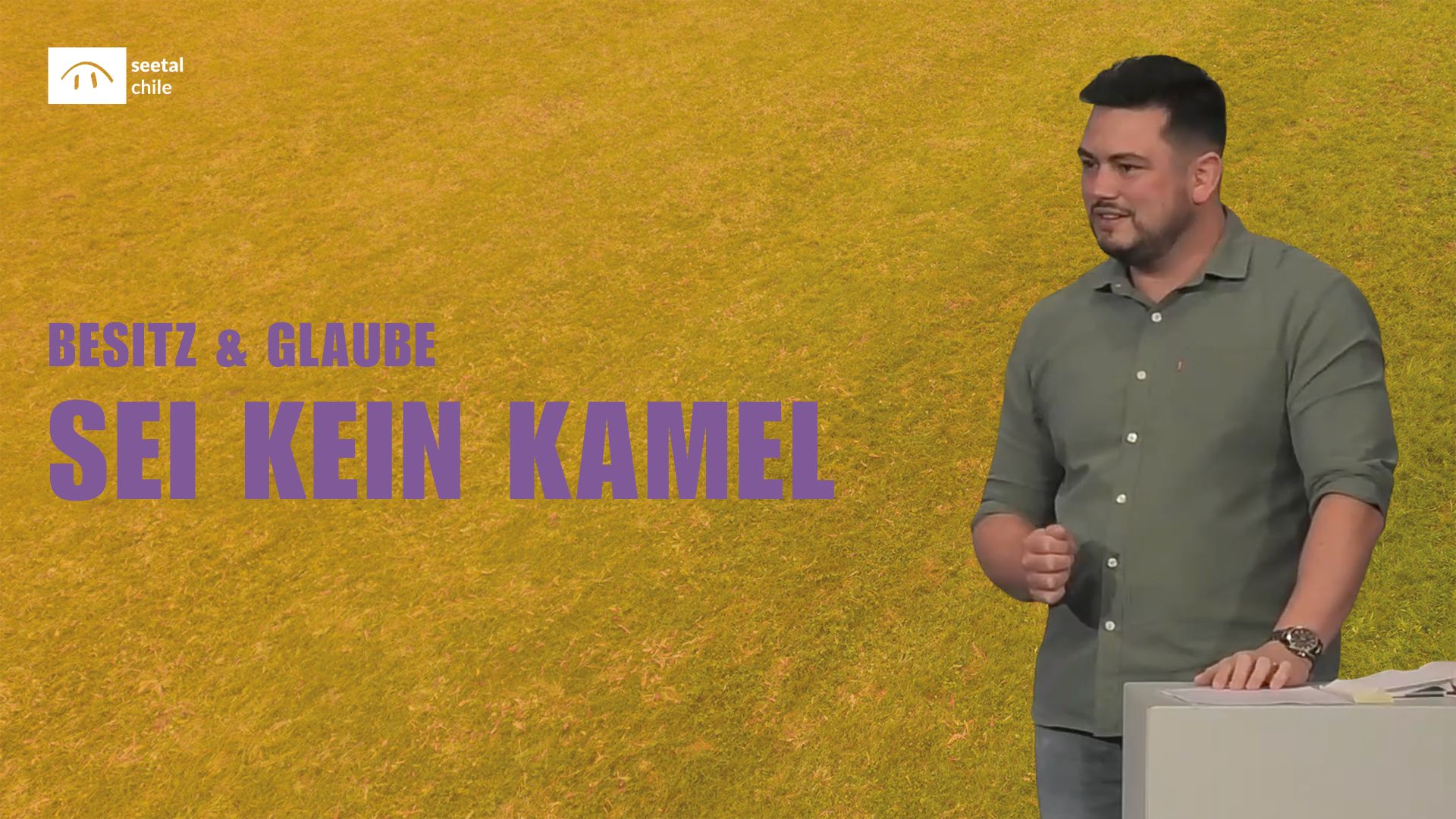Body & Faith | The high value of the body
Series: EIFACH muetig – with Jesus as a role model | Bible text: Genesis 2:7; John 1:14; Romans 8:23
The value we place on the physical and material has a huge impact on questions of ethics, sexuality and the preservation of creation. In addition to the creation account, the incarnation of God in the person of Jesus and his bodily resurrection also show that the body is of great importance in the Bible. Ultimately, there will be a new heaven and a new earth where people with new bodies will live in close communion with God.
What is the value of a human body? In terms of chemical components, an adult human body consists of 68 per cent water, 20 per cent carbon, 6 per cent oxygen, 2 per cent nitrogen and 4 per cent ash components. The value of the raw materials is perhaps – depending on body size – CHF 10. If you were to sell your organs, you would get around 250,000 euros. Neymar’s transfer fee when he moved from FC Barcelona to PSG was 222 million euros. What is the value of a human being?
Disregard for the body
Typically, a person’s body, indeed matter in and of itself, has been undervalued throughout history. There are creation stories from antiquity in which the world was created as the «waste product» of a battle between the gods or was generally seen as a bad, evil place.
Even at the time of the first churches, the physical was viewed very negatively. There was the false doctrine of gnosis (=knowledge), which was based on this, that a secondary god, a demon, created the physical world. The body was seen as a prison for the soul, something from which we must escape and from which we must be released. This way of thinking was strongly influenced by the Greek philosopher Plato (427 to 347 BC). He taught that the sensually perceptible world is only a world of images of the eternal, unchanging ideas.
This disregard for the body still has an impact today. One example of this is a decision by the US Supreme Court in 1973 on the legalisation of abortion. At that time, it was said that a foetus is human, but not yet a person. In other words, it is a lump of cells but not yet a person and can therefore be aborted. A dualism is used here in which the body is subordinated to the soul.
Unfortunately, our hopes for the afterlife are often more platonic than we think. Many believe that our soul will one day be saved and exist eternally in a distant disembodied heaven. The fact that the preservation of creation is hardly given any space in many Christian ethics also testifies to a disregard for matter. As many Christians think that the visible creation is passing away anyway, issues such as environmental protection and sustainability hardly appear on their radar.
René Descartes summarises the Enlightenment period in one sentence: «I think as if I am.» In this day and age, the following applies: «I feel, therefore I am.» Or: «I am what I feel.» The body is subordinated to feelings, which is crucial in gender ideology.
Respect for the body
In contrast, the Bible attaches great value to the body and matter. The first chapters already describe how God creates the visible world, i.e. all matter, land, water, animals, fish, trees, etc. After each day of creation, it says that God looks at it and it was good. After each day of creation, it is said that God looks at it and it was good. As the conclusion and crowning glory of creation, God creates man: «Thus God created man in his own image, in the image of God he created them, male and female he created them» (Genesis 1:27 NLB). Humans are given the task of preserving and cultivating the material creation. The final assessment of the material creation is given the rating very good: «Then God looked at everything he had created. And he saw that it was very good […]» (Genesis 1:31 NLB). God created the material, visible world very well and on purpose.
The second chapter describes the creation of man in more detail. «Then the LORD God formed man from the dust of the ground and breathed into his nostrils the breath of life, and man became a living soul» (Genesis 2:7 ELB). It is interesting that God begins with the body. There is not first a disembodied soul or a spirit that still needs a shell. No, first there is the body and with the breath or spirit of God, man becomes a living soul. This testifies to the dignity and intention with which God created the human body.
But then disaster struck the world. Through the sin of mankind, the power of evil took hold. This had a strong influence on the whole of creation, not least on the human body. From now on there was illness, deformity and weakness. Hearts fail, knee joints have to be replaced, cells grow uncontrollably. But none of this changes the respect for the body and matter. David writes: «You created everything in me and formed me in my Mother’s womb. I thank you for making me so glorious and excellent! Wonderful are your works, I know that well» (Psalm 139:13f NLB). David says this even though there was a man in his neighbourhood named Mefi-Bosheth who was crippled in both legs (2 Samuel 9). David honoured and appreciated this man.
So should we: creation, matter and our bodies are neither bad nor a problem. Our bodies are not always optimal, but that does not diminish the value and dignity of our bodies.
A strong indication that our body with skin and hair and all its smaller and larger original features is good is shown by the fact that God himself became man in Jesus. In ancient times, the resurrection of Jesus was also a scandal, but the even greater scandal was the incarnation. John describes it like this: «And the Word became flesh and dwelt among us, and we beheld his glory»(John 1:14 LUT). Many philosophers and religious leaders have taught that one must flee from the body, but God, of all things, became human. Even after the resurrection, he had a body, the resurrection body, with which he himself remains at the ascension. Christianity holds the body in very high esteem.
The redemption and salvation that a person will experience through faith in Jesus Christ includes not only the salvation of our souls, but also the gift of a newly created body: «And even we, though we have received a foretaste of the coming glory in the Holy Spirit, groan and eagerly await the day when God will establish us in our full rights as his children and will give us the new bodythat he promised us» (Romans 8:23 NLB). In any case, Jesus will restore the whole material creation at his return (Colossians 1:15–20).
We find the culmination of the appreciation of our body in Paul. He is faced with the challenge of teaching men who have come to faith in Jesus Christ a new approach to sexuality. Until then, they had been used to going to prostitutes. There was also a lot of debauchery in the area of sexuality. Interestingly, there are Paul is not simply giving a commandment, but encouraging a new way of thinking. Men should learn to think more highly of their bodies: «Or do you not know that your body is a temple of the Holy Spirit within you, who lives in you and was given to you by God? You do not belong to yourselves, because God has paid a high price for you. Therefore, honour God with your body!» (1 Corinthians 6:19f NLB). Our body has an intrinsic dignity and this is important for sexuality. Christianity sanctifies and honours the body as a sacred place, a temple of God in the cosmos. The revolutionary sexuality of the first Christians was based on this.
C.S. Lewis: «Christianity is almost the only one of the major religions that affirms the body through and through. From a Christian perspective, matter is a good thing. God himself has taken on a body, and we will also be given a body of some kind in heaven, which will then be an essential part of our bliss, our beauty and our strength.»
Practical consequences
In biblical terms, body and soul are of equal value, and in many places they are even interchangeable terms. It is therefore important to pay the same attention to caring for the body as for the soul. We tend to assign the cultivation of communion with God to the soul. What we need as souls are repeated times of silence and times in which we come to rest. In this silence, we then also encounter God. People also need attention with regard to their physicality:
Gratitude for our originality. There is great strength in the fact that we have a full yes to our body and thank God for it from the bottom of our hearts. This is also good for the soul! Let us also thank God in particular for the «originalities» that we don’t like at first glance. They make us original and unique.
Our body enables closeness. Our skin contains up to 20 million sensitive sensory cells that send signals to the brain at lightning speed. Touch not only influences our emotional life. We also need it to stay physically healthy. A lack of hugs and closeness leads to stress, high blood pressure and weakens the immune system. Hugs that last longer than five seconds have a greater impact on our well-being than those that last three seconds or less. We breathe more deeply. The muscles relax. Our blood pressure drops. We feel less anxiety.
Our body needs attention. We need enough sleep, a healthy diet and enough exercise. In some places, this attention is turning into a body cult. I recently saw a documentary programme on Swiss television about followers of the longevity movement. These people want to be physically healthy and mentally fit even at the age of 100. Their WhatsApp group is called Don’t die Switzerland (not dying Switzerland). Longevity is a huge trend on social media. The great role model of this movement is Bryan Johnson. His big goal is not to die. To this end, he injects blood from his 18-year-old son. He explains his daily routine: «I wake up at 4.00 am. Then I work for an hour and then take 60 pills, with a further 40 later in the day. My breakfast is a mix of broccoli, cauliflower, mushrooms and garlic, and in the morning I have a pudding made from nuts and berries. Afterwards I do an hour of sport, then red light therapy. I have my last meal, a mix of vegetables, nuts, berries and seeds, at 11.00 am.» Then there are lots of therapies, sports sessions and meetings with doctors. And he goes to bed at 8.30 pm.
Our body must not become our god. Jesus has already achieved what Bryan Johnson dreams of: he has conquered death. He died physically and rose again physically to redeem us. As followers of Jesus Christ, our bodies are also affected by God’s new creation. Our resurrection body will be flawless, perfectly healthy and immortal.
Possible questions for the small groups
Read the Bible text: Romans 8:18–23
- What does this text (Romans 8:18–23) say about the connection between salvation and matter?
- Where in our society is it expressed that the body / the material plays a subordinate role?
- What are the cornerstones of a biblical theology of the body? How do you recognise that the Bible attaches great importance to the body?
- What could the call to preserve and cultivate creation mean for followers of Jesus?
- Paul justifies the idea that sex between a man and a woman belongs within the framework of marriage with the high value of the body? What does the one have to do with the other?
- How do you treat your body in terms of nutrition, exercise, closeness and care? To what extent does body theology have an influence on this?




